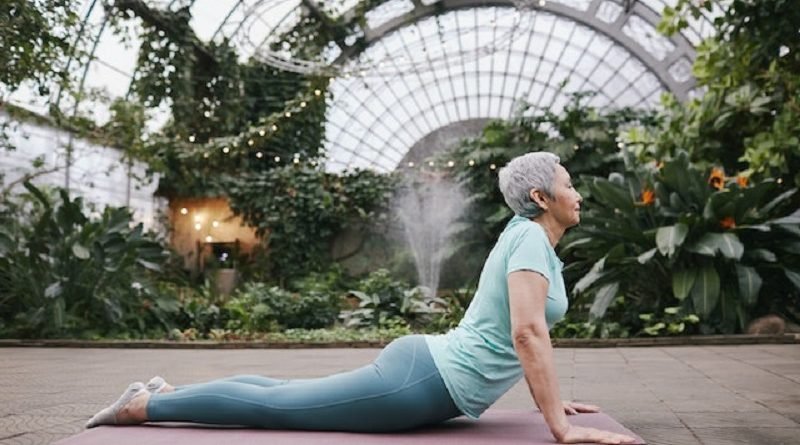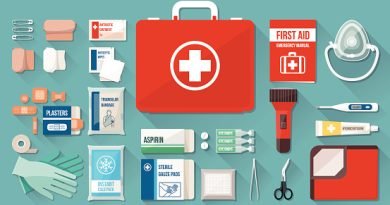6 Ways Our Bodies Change As We Get Older
Lifelong aging and the myriad of changes the human body undergoes are inescapable parts of existence. These changes may occur on a physical, mental, or emotional level and impact one’s general well-being. While every person’s aging process is unique, a number of changes are common for everyone. This article will examine six ways our bodies change as we get older.
1. Declining Muscle Mass and Strength
One noticeable change with aging is the gradual loss of muscle mass and strength. Sarcopenia is a process that normally starts around age 30 and picks up speed around age 60. This decrease is brought on by hormonal shifts, inactive habits, and poor nutrition. Strength training, in particular, can help slow down muscle deterioration and preserve strength as you age. A sedentary lifestyle and inadequate nutrition, including insufficient protein intake, can further accelerate muscle deterioration.
2. Reduced Bone Density
Another typical age-related change is a reduction in bone density, which increases the risk of osteoporosis and fractures. This decline is attributed to hormonal changes, decreased physical activity, and insufficient calcium and vitamin D consumption. Exercises that involve lifting weights, a diet high in calcium and vitamin D, and, if necessary, medicinal therapies can all help preserve bone health and lower the risk of fractures as you get older.
Age-related reduction in bone density can have a big impact on how healthy bones are overall. Osteoporosis, a disorder characterized by brittle and weak bones, is more likely to occur as bone mass diminishes. Hip, spinal, and wrist fractures are most common in people with osteoporosis.
3. Weight Gain and Slower Metabolism
As you age, your metabolism naturally slows down, which results in weight gain and a change in the body’s composition. Reduced muscle mass, hormonal changes, and a drop in physical activity are all contributors. To properly control weight and avoid associated health problems, it is crucial to keep a balanced diet, exercise often, and alter one’s lifestyle to be as healthy and productive as possible.
The slowdown in metabolism is further exacerbated by the loss of muscle mass and the rise in body fat that comes with age. At rest, muscular tissue consumes more calories than fat tissue. This is due to the higher metabolic rate in muscle tissue. Your resting metabolic rate falls when muscle mass is lost, making it easier to put on weight and more difficult to lose it.
4. Skin and Appearance Changes
As you age, your skin and external appearance also change. With time, your skin thins and loses suppleness, and wrinkles and age spots appear. Hormonal fluctuations, cumulative solar exposure, and lifestyle choices influence these changes. While natural aging is unavoidable, some skin care techniques, including moisturizing, applying sunscreen, and limiting your exposure to the sun, can help you keep your skin looking younger. Individuals may decide to investigate cosmetic treatments, such as a facelift, to address certain concerns with their appearance.
5. Decreased Sensory Functions
Your sensory functions, including vision and hearing, tend to decline as you age. As a result of presbyopia, or the loss of near vision, many people need to wear reading glasses. Presbycusis, an age-related hearing loss, is also common. The use of corrective equipment when appropriate, together with routine eye and hearing examinations, can assist in lessening these changes and preserving your quality of life.
To identify any early indications of vision or hearing loss, routine eye and hearing examinations are crucial. These regular check-ups enable prompt interventions to address particular needs, such as prescription glasses, contact lenses, or hearing aids.
6. Changes in Cognitive Function
Aging can bring about changes in cognitive function, including memory loss and a decline in processing speed. Although some cognitive deterioration is a normal aspect of aging, significant impairment can be a sign of underlying diseases like dementia or Alzheimer’s. As you age, keeping a healthy lifestyle, being mentally active, and participating in brain-stimulating activities may all improve cognitive health.
A lower risk of cognitive decline has been associated with regular exercise, a balanced diet high in antioxidants and omega-3 fatty acids, enough sleep, and social involvement. It’s never too late to start these practices and give your brain the attention it deserves, which can help you age gracefully and stay healthy overall.
Conclusion
Your body will go through several changes as you progress through life. Understanding these changes might make accepting and understanding the aging process easier. Although you cannot stop time from passing, you may choose to age healthily. You may improve your general well-being and manage the changes that occur by being physically active, providing your body with wholesome nutrition, and placing a high priority on self-care.



